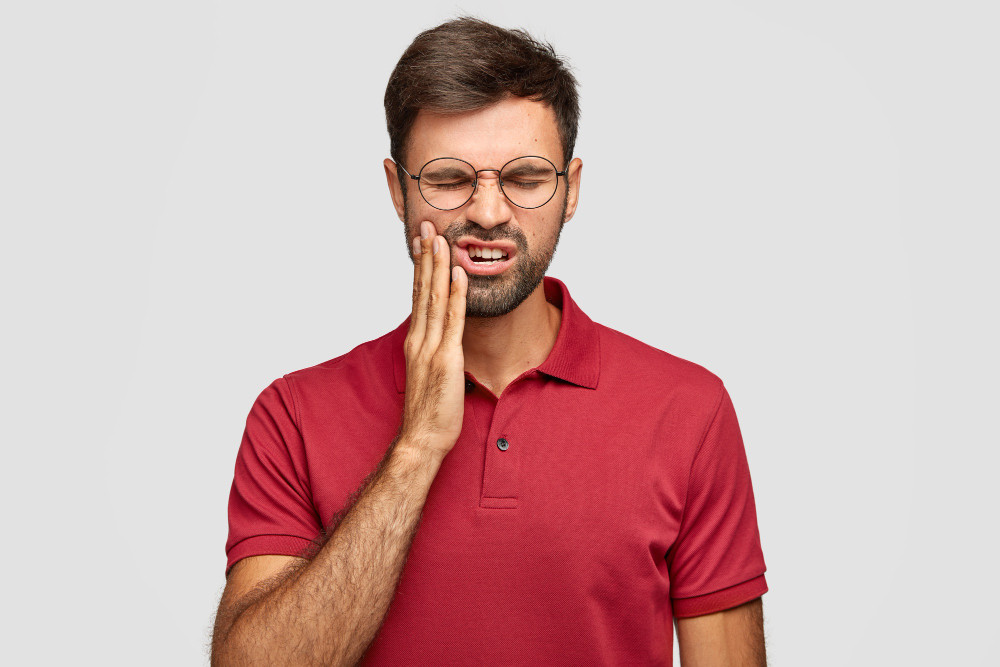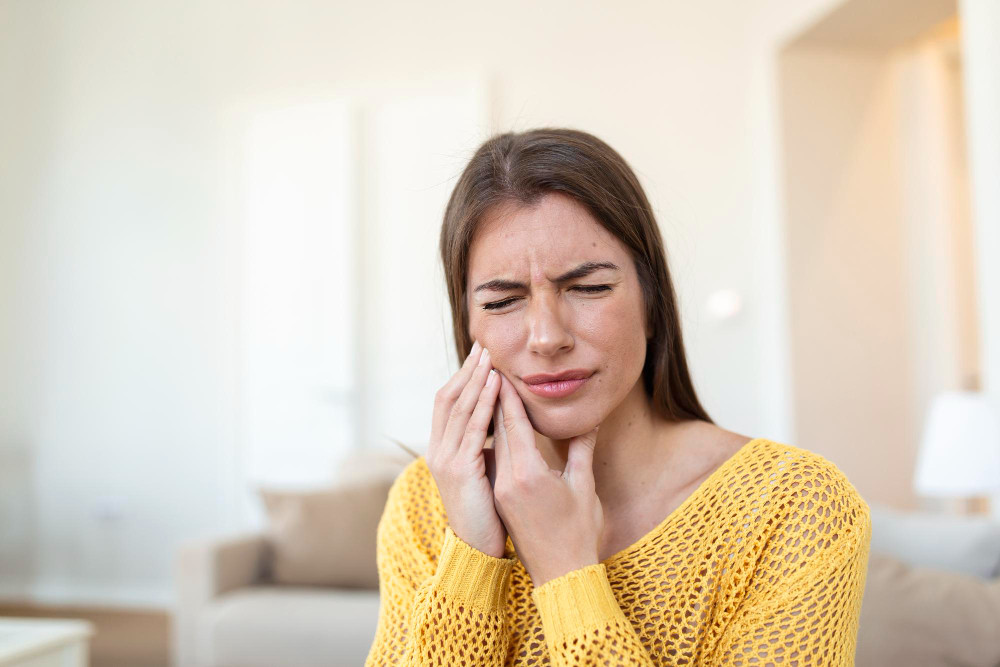Bleeding gums are typically not a severe health issue. This condition often results from poor oral hygiene, gum inflammation (gingivitis), incorrect brushing techniques, harsh dental flossing, vitamin deficiencies, or infections in the mouth or teeth.
To avoid bleeding gums, maintaining good oral hygiene and adopting healthy habits is essential.
How To Prevent Bleeding Gums
Here are several ways to maintain gum health and prevent bleeding gums:
Brushing Your Teeth with the Correct Technique
A common cause of bleeding gums is plaque buildup from infrequent or improper brushing. This buildup allows bacteria and food debris to accumulate, damaging the gums.
Brushing your teeth twice daily is crucial for removing plaque. To enhance effectiveness:
- Use a soft-bristled toothbrush.
- Make gentle, circular motions instead of vigorous back-and-forth scrubbing.
- Avoid brushing too hard to prevent gum irritation.
Proper brushing techniques can effectively eliminate plaque while protecting gum health.
Flossing
Flossing is important because it helps to clean the spaces between teeth where toothbrush bristles can’t reach. Food particles will accumulate and form plaque in these areas, which in turn can irritate gums and lead to bleeding.
Daily flossing helps remove this debris, reducing the risk of gum irritation and promoting healthier gums.
Rinsing with Mouthwash
Using mouthwash complements brushing and flossing by killing bacteria that cause plaque and gum infections. Rinsing regularly helps prevent gum inflammation and promotes overall oral hygiene.
Eating Nutrient-Rich Foods
A balanced diet is critical for gum health. Nutrients like vitamin C help strengthen gum tissue and promote the healing of minor injuries. In addition, calcium supports strong teeth and bones, and you can find it in dairy products, green vegetables, and fish.
Quit Smoking
Smoking negatively impacts oral health by irritating gum tissues and causing inflammation. Chemicals like nicotine and tar in cigarettes aggravate conditions such as gingivitis and periodontitis, the leading causes of bleeding gums.
Additionally, smoking restricts blood flow to the gums, impairing their ability to heal and recover from injuries or infections. Quitting smoking can significantly improve gum health and reduce bleeding.
In addition to these steps, visit the dentist regularly—ideally every six months. Dentists can remove plaque buildup that toothbrushes can't reach and detect early signs of gum disease, allowing for timely treatment to prevent more serious issues.
If you have questions about gum or dental health, consult a professional. You can also use the Ai Care health consultation feature by downloading the app on the App Store or Play Store.
Want more information about other diseases? Click here!
- dr Nadia Opmalina
Julie Marks (2024). How to Stop Bleeding Gums. Available from: https://www.verywellhealth.com/how-to-stop-bleeding-gums-8636346
Medline Plus (2022). Bleeding gums. Available from: https://medlineplus.gov/ency/article/003062.htm
Peter Crosta (2023). Everything you need to know about scurvy. Available from: https://www.medicalnewstoday.com/articles/155758
Mayo Clinic (2023). Gingivitis. Available from: https://www.mayoclinic.org/diseases-conditions/gingivitis/symptoms-causes/syc-20354453
Cleveland Clinic (2022). How to Properly Brush Your Teeth. Available from: https://health.clevelandclinic.org/how-to-brush-your-teeth
Valencia Higuera (2020). What’s the Best Way to Floss Your Teeth?. Available from: https://www.healthline.com/health/how-to-floss
Harvard Medical School (2021). Bleeding gums? You may need more vitamin C. Available from: https://www.health.harvard.edu/diseases-and-conditions/bleeding-gums-you-may-need-more-vitamin-c
Better Health Channel. Effects of smoking and vaping on oral health. Available from: https://www.betterhealth.vic.gov.au/health/healthyliving/smoking-and-oral-health












